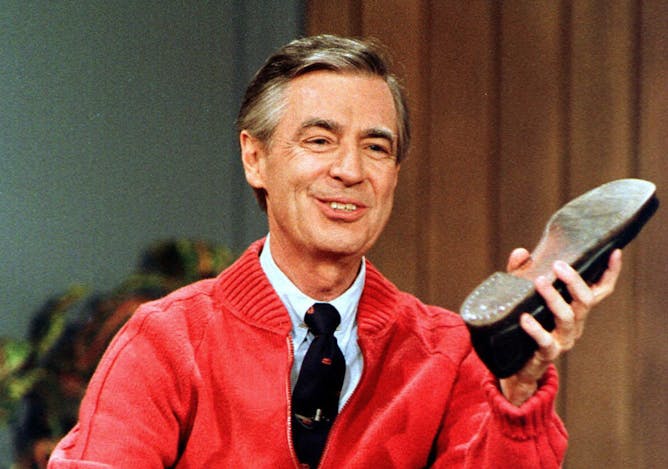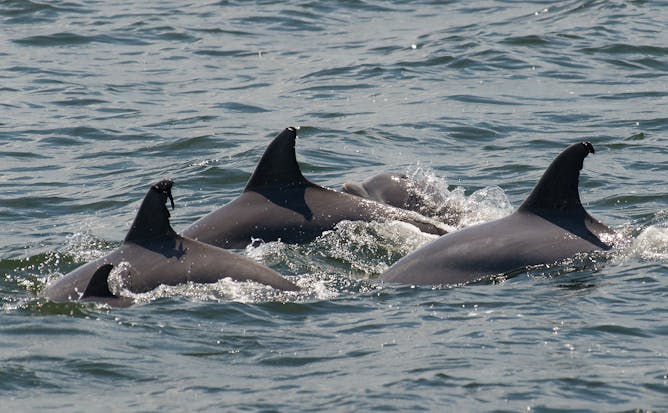Editor's note
|
|
It’s still unclear how the U.S. agency responsible for young migrants lost track of nearly 1,500 of them. However, research from Texas A&M sociologist Stephanie Canizales, based on hundreds of interviews, sheds light on what life is like for these young people once they’re placed in homes, usually with family members, in the U.S. She writes that “children may end up leaving their sponsor’s care for reasons ranging from financial need to their pursuit of their own idea of a better life.”
The new documentary about Mister Rogers opens today. While many may be attracted to Fred Rogers’ message of kindness and love in the hope of a better world, it’s worth noting his message could bring a healthier one, too. Physician-philosopher Richard Gunderman from Indiana University describes the health benefits of Rogers’ message, citing studies that show “people who make kindness a habit have lower levels of stress hormones.”
Marine protected areas – essentially, underwater parks – are a popular ocean conservation tool. But how well do they protect species that move around a lot, from dolphins at the surface to lobsters on the ocean floor? Marine scientists Heather Welch of the University of California, Santa Cruz and Jennifer McHenry of Florida State University explain why marine reserves should be designed with more focus on the movement of sea life – and why someday they might even move with the fish.
|
Danielle Douez
Associate Editor, Politics + Society
|

|
|
Top stories
|

Detainees sleep in a holding cell at a processing facility in Brownsville, Texas.
AP Photo/Eric Gay
Stephanie L. Canizales, Texas A&M University
Interviews with hundreds of unaccompanied minors in Los Angeles reveal that relationships with US sponsors can be complicated.
|

Fred Rogers at a taping of his famous show on June 28, 1989.
Gene J. Puskar/AP File
Richard Gunderman, Indiana University
As the documentary about 'Mister Rogers' Neighborhood' hits theaters today, it's worth noting that Rogers' emphasis on kindness and love is proving to be very important to good health. Here's why.
|

Bottlenose dolphins off the coast of New Jersey.
Artie Kopelman
Heather Welch, University of California, Santa Cruz; Jennifer McHenry, Florida State University
How can marine preserves best protect sea creatures that move in and out of them? Two ocean scientists describe new thinking about designing marine protected areas.
|
|
|
|
|
|
|
|
|
|
|
|
|
|
|
From our international editions
|
-
Monica Grady, The Open University
New discovery is not a proof for life on Mars, but we are definitely getting closer.
-
Beth Gott, Monash University
At least half the food eaten by the first Australians came from plants. And in terms of medicines, many different parts of plants were used.
-
Rebecca Haines-Saah, University of Calgary
When it comes to cannabis legalization, we don’t need more education, we need to do education better.
|
|
|
|
| |
| |
|
|